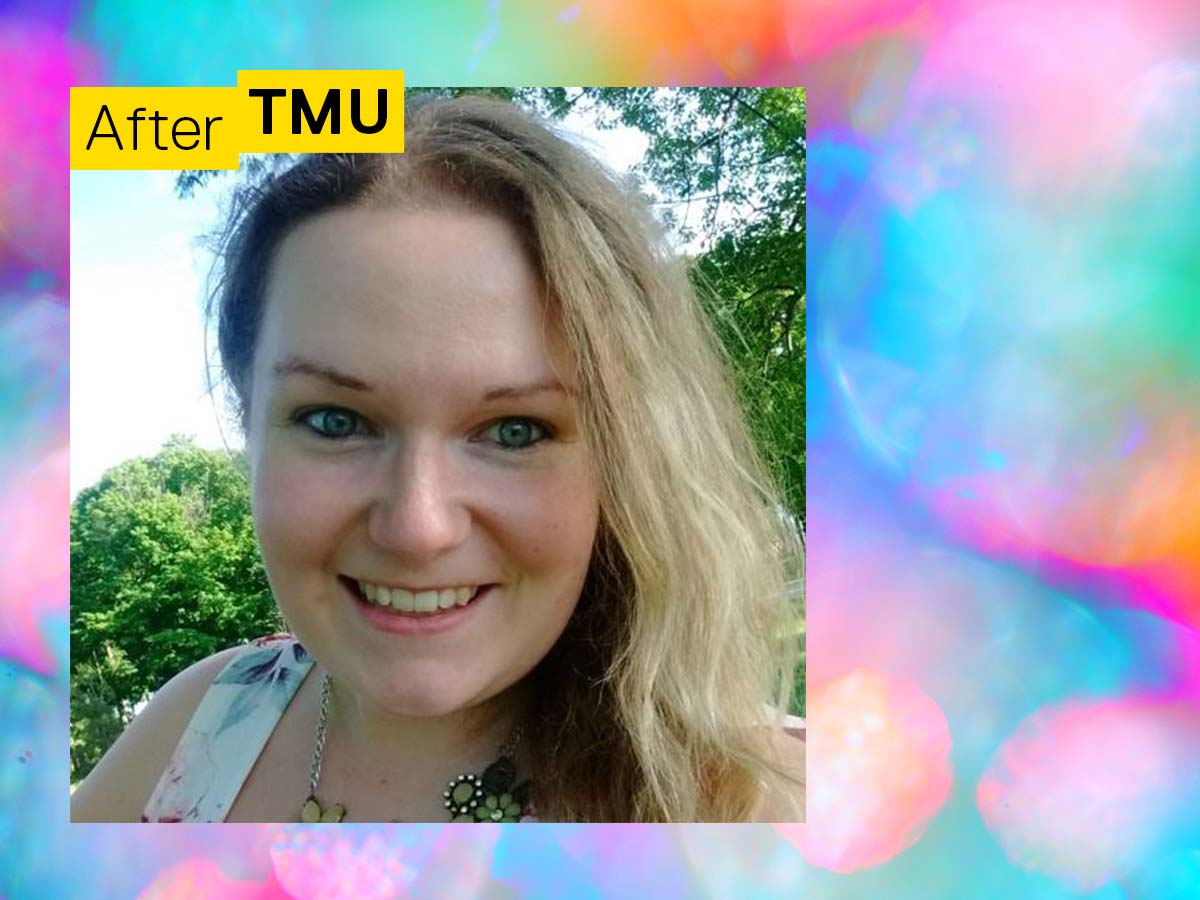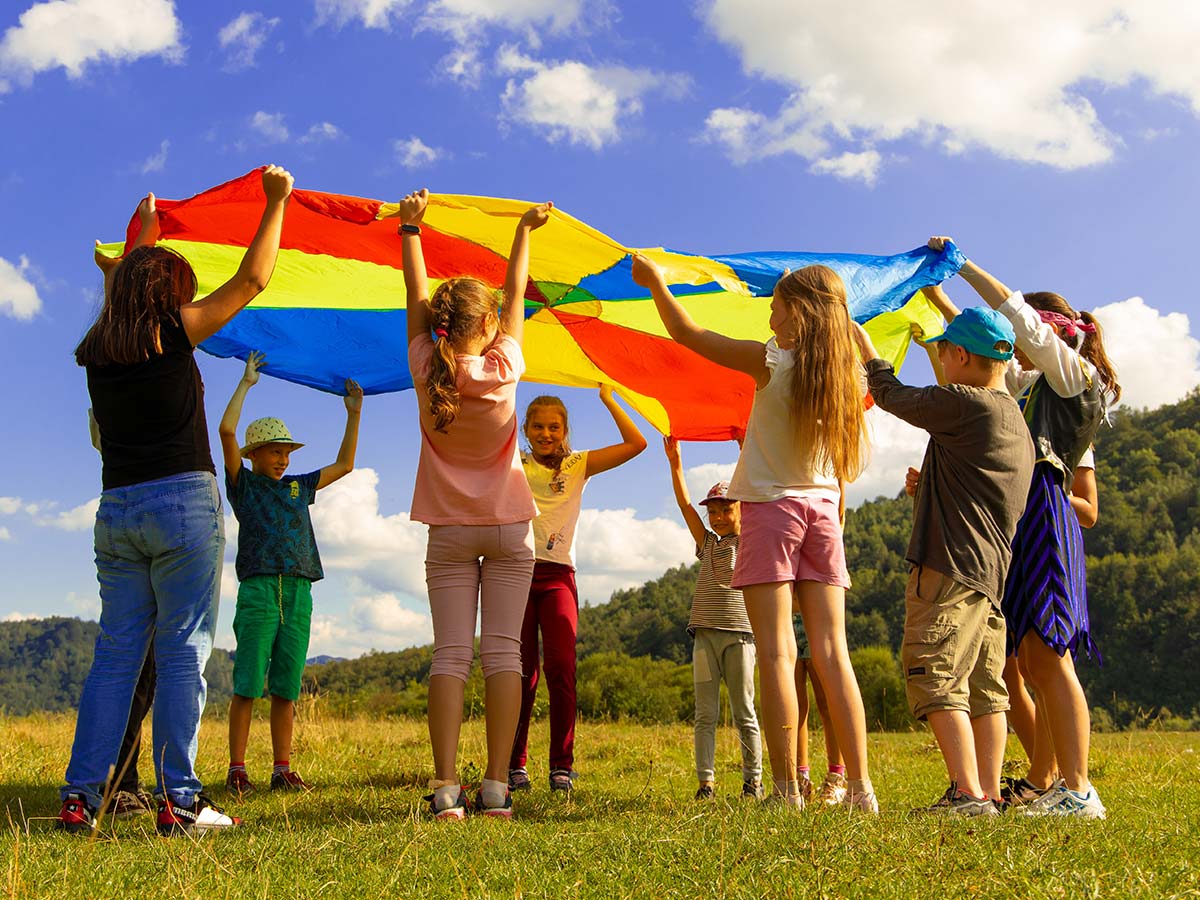AfterTMU - Megan Suggitt

Megan Suggitt
Disability Studies ’22, Aboriginal Knowledges and Experiences ’21, Child and Youth Practitioner, Founder of Beautiful Minds Ontario
Why did you choose to study at Toronto Metropolitan University (TMU)?
I chose to study at Toronto Metropolitan University because I wanted a unique program that would allow me to specialize in the field of disability. After obtaining my diploma in the Child and Youth Worker program at Cambrian College, I spent some time researching different university options and I felt the online program delivery at Toronto Metropolitan University offered both an accessible and accommodating educational opportunity. I live almost three hours from campus, so I enjoyed the flexibility of being able to study online. Pairing together both my college diploma and a degree in Disability Studies, allowed me to gain valuable skills to support me with my career goals.
What did you enjoy most about the Disability Studies program and how has it advanced your career?
The Disability Studies program was absolutely life-changing for me! I have a non-verbal learning disability and I identify as neurodivergent. The professors in the Disability Studies program were not only amazing, but they were beyond accommodating to my academic needs. Compared to college, this exceeded my expectations and I found a home in the Disability Studies program.
Previously my concepts around disability were very much associated with the medical model and I perceived disability with stigma, labels, and shame. It wasn’t until the Disability Studies program that I learned to embrace my disability identity instead of allowing ableism to force me to mask who I am. There were so many valuable key learnings which included the Eugenics movement and previous disability institutions such as Huronia Regional Centre. Learning about disability art also allowed me to better understand the Disability community at large, and how it embraces concepts around disability justice and activism.
A fundamental aspect of the Disability Studies program which I’ve applied to my career is largely situated from the social model of disability. When working with youth with learning disabilities and Autism, I’ve applied a new lens and framework when looking at disability. I’ve incorporated key disability justice principles and have embraced neurodiversity within every aspect of my career.
Overall, the Disability Studies program equipped me with the knowledge and tools needed to be a better Disability advocate while challenging societal perspectives around disability. I’ve learned how to lean into my discomfort and to speak out for those who are vulnerable while following the “nothing about us without us” disability rights principle.
Which learnings from the Indigenous Knowledges and Experiences certificate did you find most impactful?
As a white settler, I felt guided to take the Indigenous Knowledges and Experiences certificate to unlearn the “true story of Canada”. Similar to the Disability Studies program, the Indigenous Knowledges and Experiences program also opened my eyes to many new and different perspectives. I learned about the devastating and violent impacts of colonization while also learning about the strength and resiliency of Indigenous peoples. One of my favorite courses was “Indigenous Early Learning” as it elaborated on both traditional Indigenous teachings as well as the current educational system and how to “decolonize” certain aspects. I also enjoyed the course “First Nation Issues” as it deepened my understanding of the different issues Indigenous peoples face such as no clean drinking water across 58 Indigenous communities in Canada.
The education I gained in the Indigenous Knowledges and Experiences certificate program, not only shaped how to be a better ally for Indigenous peoples, but it instilled a deeper meaning as to what reconciliation really is and how we can all work together to build a better Canada.
Through an intersectional lens, I was able to bridge together both disability and Indigenous knowledge for my thesis and apply Indigenous methodology as a research approach. Incorporating and using Indigenous methodology as a research method allowed me to question hegemonic Western approaches, while framing a new understanding.

Photo credit: Artem Kniaz
In your opinion, what are the benefits of continuing education through certificate Programs?
I believe continuing education through certificate programs invites you to gain new knowledge that you can apply to both your personal life as well as professional life. The certificate programs provide just enough of an extra boost to provide you with a unique skill background. I was grateful that Toronto Metropolitan University offered a certificate in Indigenous Knowledges and Experiences, as it was exactly what I was looking to specialize in. I felt it really helped complement my degree.
What are some attributes of individuals who are most successful in your field?
Something that has been instilled in me since the beginning of my disability studies journey, is that disabled people themselves are experts. Disabled people provide an authentic narrative and disability representation. It’s critical to include disabled people at the table when it comes to policy, as it embraces “nothing about us without us” disability justice framework.
Throughout the years, I’ve met and connected with Huronia Regional Centre survivors who are doing some wonderful work around disability activism. Others who have impressed me are Temple Grandin who has autism. Kate Rossiter and Jay Timothy Dolmage, who have done a lot of institutional history research. An Indigenous scholar and fellow TMU alumna, who I discovered during my thesis, Nicole-Ineese-Nash has been doing some fabulous research with Indigenous understandings of disability.
When entering the field of Disability Studies, I believe it’s important to be empathetic, open, and respectful. The history of disability carries a legacy of harm, trauma, and stigma. It’s important to shed light on the vulnerable in a respectful way that creates a space for both disabled people, allies, and scholars.
What experiences inspired you to start your own business, Beautiful Minds Ontario?
Beautiful Minds offers a neurodiversity perspective on learning disabilities which enhances resiliency, builds self-worth and empowers youth with learning disabilities to “see the ability.”
My passion for starting Beautiful Minds was through my own personal experiences of having a Non-Verbal Learning Disability. I was continually told from a young age by psychologists and teachers “I wouldn’t amount to anything” and to “never consider post-secondary education”. I continually felt the weight of indifference and was segregated within various special education classrooms. My personal experiences within the educational system reinforced the notion of ‘otherness’. I fell between the cracks of the educational system and I didn’t have enough support.
Through my education in the Disability Studies program, I then came to learn this was the definition of “ableism”. Then, through the various placements I did in the Child and Youth Worker program, and different employment opportunities I started to find my seven-year-old self in many of the youth I worked with. The students were begging for a form of solidarity but were misunderstood by frustrated teachers. I often felt very limited with what I was able to do for youth with learning disabilities in these various environments, so I decided to take a leap of faith and start my own business. I want to guide others out of their own darkness and illuminate a pathway of change. I am not defined by my disability, and my experiences have led me on a journey to cultivate change.
As a disability activist, what change would you like to see and how can others support you?
I would really love to see the educational system become decolonized and embrace neurodiversity. I know this seems like such a large step, but there are so many aspects of the educational system that needs to be fixed. If we were to teach children with disabilities that they have strengths and gifts, how to advocate for themselves, and different learning styles I can only imagine the possibilities.
As a disability activist, others can support me by following my business social media pages which I’ll link to down below. My social media content is used to educate others about neurodiversity and learning disabilities. I’m also a disability blog writer for the NVLD project, I’ll share the link down below but sharing and reading my work is another way to support me. I encourage others to educate themselves on neurodiversity and read books by disabled people themselves. A great place to start is by reading books by Jonathan Mooney, he’s a neurodiverse writer and entrepreneur, and his book “Normal Sucks” is Wonderful!
In the near future, I hope to also explore disability art-making and fulfill my dream of writing a book about my experiences with a non-verbal learning disability. I appreciate any support and steps others are making to perceive disability in a more unique way.
What are the biggest challenges in your work and how do you overcome them?
Being a disabled entrepreneur is challenging! I also deal with chronic illness as well, so managing my time and prioritizing medical appointments, medication, rest, self-care and the ability to work in “crip time” is absolutely essential. I’ve learned that baby steps are still steps, and to continuously remind myself of how far I’ve come. Some days I have to take a step back and take a breath and be more kind to myself because I can’t tackle it all in one day. There are also a lot of barriers of stigma and shame associated with disability that I struggle with not only myself at times but with the youth I work with. Patience and prayer have been my virtues. It’s so easy to feel discouraged or defeated, being an entrepreneur is a rollercoaster! I remind myself that if I’m able to plant one seed and make a difference in someone’s life, at the end of the day I feel fulfilled in my heart knowing that was enough.
What advice would you give new or recent graduates embarking on careers in a similar field?
I would encourage new or recent graduates to take the road less traveled. Entrepreneurship within the field of Disability Studies is exciting! Your struggles and lived experiences as a disabled person can be used to create something. Disability Studies scholars offer a unique lens and framework, our skillset isn’t designed to sit within society’s expectations we need to color outside the lines.
If you are considering entrepreneurship, I highly recommend starting with a business plan and then visiting your local YMCA which offers many great business programs, or a local business center that can offer mentoring and grants. It’s okay to feel a little overwhelmed with the idea of starting a business but trust the process and eventually that idea will flourish!
Learn more about Megan and her work here:
Facebook: @beautifulmindsontario (external link, opens in new window)
Instagram: @beautifulmindson (external link, opens in new window)
NVLD Project: nvld.org (external link, opens in new window)